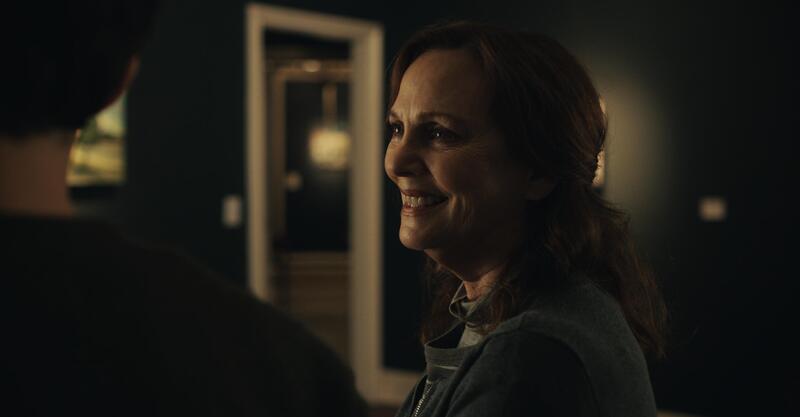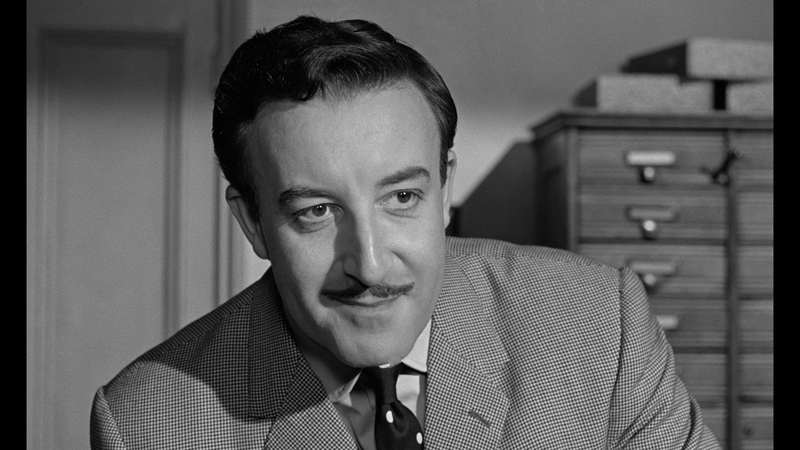
A Tender Portrayal of What Fades and What Endures
MOVIE REVIEW
Olive
–
Genre: Drama, Short
Year Released: 2025
Runtime: 13m
Director(s): Tom Koch
Writer(s): Tom Koch
Cast: Lesley Ann Warren, Tom Koch, Marie-Louise Boisnier, Jeffrey Farber
Where to Watch: shown at the 2025 HollyShorts Film Festival
RAVING REVIEW: OLIVE is that rare short film that doesn’t feel confined by time. Thirteen minutes pass, but it leaves an emotional afterglow that lingers like a full-length drama etched into your mind. Written, directed, and co-starring Tom Koch, it’s an intimate portrayal of love, loss, and identity through the lens of Alzheimer’s. This isn’t a film about the disease itself — it’s about the humanity caught inside. And with Lesley Ann Warren delivering a performance of astonishing grace, OLIVE stands as one of the year’s most powerful achievements in short-form storytelling.
There’s no rush in OLIVE, no insistence on forcing meaning through dialogue. Instead, Koch crafts an experience where meaning is felt — not told. The film opens in observation, and immediately, the world feels familiar. It’s a world that mirrors memory itself — clear for an instant, blurred the next, and then suddenly gone. Through this, Koch finds an honesty rarely achieved in films tackling illness.
Warren carries that dissolution with breathtaking nuance. She doesn’t act through grand gestures but through absence — through pauses, through eyes that hold recognition one second and lose it the next. There’s a quiet terror in her stillness, but also warmth; she lets the audience feel the tug of a mind still reaching for clarity. She gives the role weight without sentimentality, and heartbreak without manipulation. Every movement is deliberate, every silence earned.
Koch, playing Sam, becomes the film’s emotional anchor — not a caretaker defined by pity, but a human being navigating love as it shifts shape. His dynamic with Warren is restrained yet full of subtext. The moments they share — glances, fragments of conversations, small gestures of care — speak more than any monologue could. Koch never lets his direction overshadow the intimacy of those exchanges. He’s behind the camera as much as he is within the story, and that duality fuels OLIVE’s authenticity.
Thematically, OLIVE explores how love survives when identity wavers. The relationship between Sam and his grandmother — and the questions that begin to emerge as memories fade — give the film an emotional complexity beyond its runtime. It’s about how the act of remembering someone becomes a form of devotion, even when they can no longer remember you. That’s where OLIVE finds its soul — not in sorrow, but in the persistence of love amid loss. The film’s most devastating moment isn’t loud; it doesn’t scream for attention. It’s a simple exchange of glances—a recognition that flickers and disappears before it can be fully understood.
What elevates OLIVE to greatness is Koch’s refusal to simplify the moments. He embraces the ambiguity of memory and lets the audience live inside it. The fragmented timeline, the blurred reality, the silence between characters — all of it serves a single purpose: truth. It’s not an easy truth, but it’s beautiful. The film doesn’t tell you how to feel; it trusts you to find your own reflection within its quiet devastation.
In many ways, OLIVE serves as a conversation between generations — a dialogue about legacy, care, and acceptance. The use of light and shadow becomes metaphorical, as though the characters themselves are caught between time: the living and the remembered, the past and the now. Koch understands that Alzheimer’s isn’t just about what is forgotten; it’s about what persists — love, contact, observance, music, the shape of a familiar face. He turns those fragments into language.
There’s no score pushing you to cry, no exposition explaining what’s happening. Instead, emotion rises organically from the ordinary: a trembling hand, a soft laugh, a look that’s both here and elsewhere. That restraint is what makes OLIVE transcendent. It’s a story told through empathy rather than pity, patience rather than urgency. The film doesn’t want to devastate you — it wants to remind you of how beautiful it is that we try to hold on at all.
When it ends, there’s no resolution, only reflection. You sit with it, replaying gestures and gazes, realizing that Koch has built a world so intimate it feels like a memory you inherited. Few films — short or otherwise — accomplish that. OLIVE is a masterwork in minimalism, proof that emotional power doesn’t depend on length but on honesty. Every second serves a purpose. Every image stays with you. Every silence hurts. It’s a reminder that cinema, at its best, doesn’t just show life — it preserves it. Koch and Warren have created something timeless, tender, and haunting, something that will continue to haunt audiences long after its final screening.
This isn’t just one of the best short films of the year; it’s one of the best films of the year. It captures everything great storytelling should: truth, vulnerability, artistry, and grace. OLIVE isn’t just watched. It’s felt. A flawless, emotionally transcendent achievement that stands as one of the defining short films of this decade.
Please visit https://linktr.ee/overlyhonestr for more reviews.
You can follow me on Letterboxd, Instagram, Twitter, and YouTube. My social media accounts can also be found on most platforms by searching for 'Overly Honest Reviews'.
I’m always happy to hear from my readers; please don't hesitate to say hello or send me any questions about movies.
[photo courtesy of MES FILMS EN COULEUR]
DISCLAIMER:
At Overly Honest Movie Reviews, we value honesty and transparency. Occasionally, we receive complimentary items for review, including DVDs, Blu-rays, CDs, Vinyl Records, Books, and more. We assure you that these arrangements do not influence our reviews, as we are committed to providing unbiased and sincere evaluations. We aim to help you make informed entertainment choices regardless of our relationship with distributors or producers.
Amazon Affiliate Links:
Additionally, this site contains Amazon affiliate links. If you purchase through these links, we may receive a commission. This affiliate arrangement does not affect our commitment to honest reviews and helps support our site. We appreciate your trust and support as you navigate these links.



Average Rating